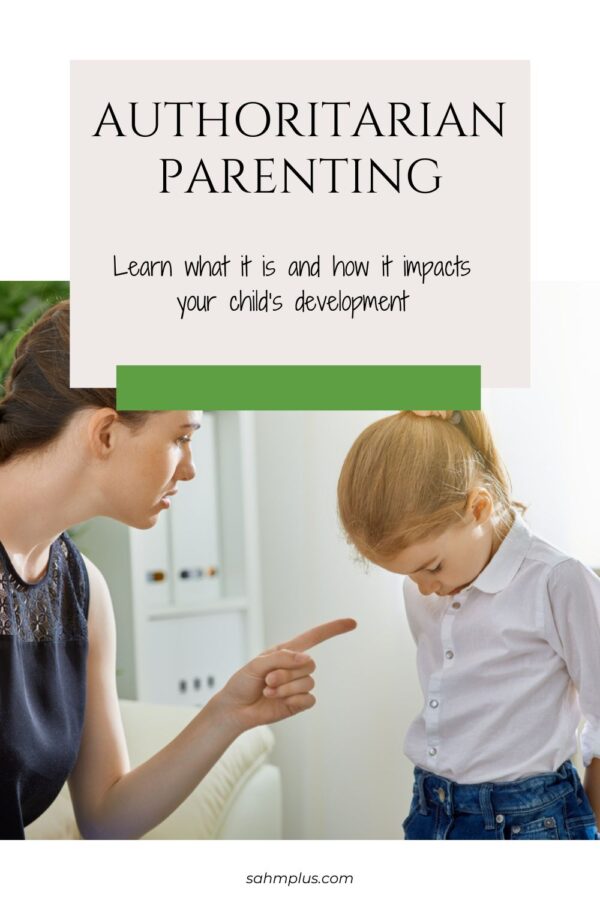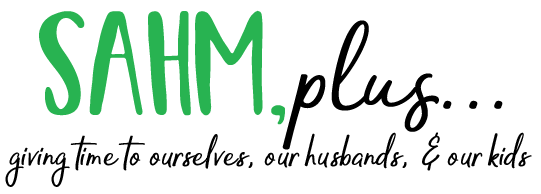Have you ever encountered parents who seem to run their households with an iron fist, leaving little room for negotiation or discussion? This style of parenting, often referred to as authoritarian parenting, is marked by strict rules, high expectations, and a strong emphasis on control. In this approach, obedience is valued above all else, with discipline often enforced through punitive measures rather than open dialogue. While it may seem like a well-defined structure could yield positive results, it’s essential to understand the potential repercussions of such a parenting style on a child’s overall development and well-being.
The term “authoritarian” might ring a bell, but its implications might not be fully understood. Authoritarian parenting is characterized by its emphasis on control, strict adherence to rules, and limited space for individual expression or negotiation. These parents often prioritize discipline over warmth, fostering an environment where children may feel hesitant to express their true selves or voice their opinions freely. As we delve into the intricacies of this parenting style, it becomes increasingly clear that while it may serve certain immediate purposes, its long-term effects on a child’s emotional and psychological growth can be quite profound.
Let’s unravel the intricacies of authoritarian parenting, exploring its attributes, effects on children, and ways to navigate toward a more balanced and nurturing approach. By understanding the dynamics of this parenting style, we can better comprehend its impact on a child’s development and equip ourselves with the tools needed to foster a supportive and healthy family environment.

What is Authoritarian Parenting?
Authoritarian parenting is a parenting style characterized by strict rules, high expectations, and little room for flexibility. In this approach, parents tend to have a strong desire for control and obedience from their children. They often enforce discipline through punishment rather than open communication or negotiation.
Authoritarian parents typically set rigid guidelines and expect their children to follow them without question. They prioritize obedience over independence and may use fear or intimidation as a means of maintaining authority. This parenting style is often associated with high levels of parental control and low levels of warmth or emotional support.
While authoritarian parenting may have its merits in certain situations, such as ensuring safety or instilling discipline, it can also have negative effects on a child’s development. Research suggests that children raised under authoritarian parenting styles may be more prone to low self-esteem, anxiety, and difficulty in decision-making. One study suggested a relationship between Obsessive Compulsive Symptoms and Authoritarian Parenting.
It is important to note that there are alternative parenting styles that promote a more balanced approach, such as authoritative or permissive parenting. These styles emphasize open communication, mutual respect, and the development of autonomy in children.
Understanding the concept of authoritarian parenting allows us to reflect on our approaches to raising children and consider the potential impact they may have on their overall well-being and development.
Core Attributes of Authoritarian Parenting
When it comes to parenting styles, authoritarian parenting is often characterized by specific core attributes. These features shape the way parents interact with their children and influence their overall approach to discipline and guidance.
Features of an authoritarian parenting style may include:
- Strictness: One of the key attributes of authoritarian parenting is the strict enforcement of rules with little flexibility. These parents often have high expectations for their children’s behavior and prioritize obedience and compliance, frequently resorting to punishment as a means of control.
- Emphasis on authority and hierarchy: Authoritarian parents maintain a hierarchical structure within the family, where they hold all decision-making power. They expect unquestioning respect from their children and may discourage open communication or independent thinking, emphasizing the importance of unquestioned authority.
- Lack of warmth and nurturing: While authoritarian parents may provide for their children’s basic needs, they often struggle with expressing affection or providing emotional support. This lack of emotional warmth can create an environment where children feel less secure in seeking guidance or sharing their thoughts and feelings, potentially leading to a less nurturing and supportive family dynamic.
It is important to note that while these attributes are associated with authoritarian parenting, every parent’s approach can vary within this style. Understanding these core features can help us recognize the potential impact of authoritarian parenting on a child’s development and well-being.
Examples of Authoritarian Parenting
Picture this: a young child stands frozen in the living room, his eyes wide with fear as his mother’s voice booms across the space. “You will eat what I serve, and you will finish it all!” she commands, her tone brooking no argument. The child’s small hand trembles as he reaches for the fork, his appetite completely gone, replaced by a sense of unease and helplessness. This is just one example of how authoritarian parenting can unfold in everyday life.
Unfortunately, the consequences of such an approach to parenting can be profound. While it may initially seem like a strict and disciplined approach would yield obedient and well-behaved children, the reality is often far from this ideal. Children raised under the authoritarian style of parenting often grapple with a range of challenges that can significantly impact their emotional and psychological well-being.
Take the case of a teenager who has been brought up under stringent rules and rigid expectations. His parents have always dictated his schedule, from his study hours to his extracurricular activities, leaving little room for personal exploration or autonomy. As he steps into adolescence, he finds it difficult to make decisions independently, lacking the confidence to trust his judgment. This lack of autonomy can hinder his ability to develop a strong sense of self and may lead to a perpetual need for external validation, making him vulnerable to peer pressure and potentially harmful influences.
Moreover, authoritarian parenting often fosters an environment where communication becomes one-sided, dominated by directives and reprimands. A child who grows up in such an environment may struggle to express their emotions openly or seek support when facing challenges, leading to a suppression of their feelings and potentially hindering their emotional development. As a result, they may find it hard to build healthy relationships, lacking the necessary skills to navigate complex social dynamics and communicate effectively.
Additionally, the fear-based nature of authoritarian parenting can instill a deep-seated fear of failure in children. A simple mistake or a minor deviation from the set rules can trigger intense feelings of guilt and shame, making it challenging for them to develop resilience and cope with setbacks later in life. As they mature, they may become overly self-critical, constantly striving for unattainable perfection and feeling inadequate when they inevitably fall short. This perpetual fear of failure can stifle their creativity and prevent them from taking risks, limiting their potential for personal growth and exploration.
These scenarios highlight just some of the long-term consequences and challenges that children raised under authoritarian parenting may face. While the intention of enforcing discipline and structure is understandable, it is crucial to recognize the potential drawbacks and consider a more balanced and nurturing approach to parenting that encourages independence, open communication, and resilience.
Effects of Authoritarian Parenting on Children
The effects of authoritarian parenting on children can have long-lasting and negative impacts on their development and well-being. Authoritarian parenting is characterized by strict rules, high expectations, and a lack of flexibility or warmth in the parent-child relationship.
One of the most significant effects of authoritarian parenting is the potential for children to develop low self-esteem and self-confidence. Constant criticism, harsh discipline, and a lack of emotional support can lead to feelings of inadequacy and a belief that their opinions or emotions are not valued.
Additionally, children raised in authoritarian households may struggle with social skills and have difficulty forming healthy relationships. The strict rules and limited autonomy imposed by authoritarian parents can hinder a child’s ability to develop independence, problem-solving skills, and decision-making abilities.
Furthermore, the long-term effects of authoritarian parenting can manifest in various ways as children grow into adulthood. Research suggests that individuals raised under such parenting styles may be more prone to anxiety, depression, aggression, and even substance abuse.
It is important to note that while some level of structure and discipline is necessary for child development, an excessive emphasis on control without nurturing warmth can have detrimental consequences. Striking a balance between setting boundaries while fostering open communication and emotional support is crucial for promoting healthy growth in children.
Signs of Authoritarian Parenting
Ever noticed certain patterns in children that seem to echo the parenting style they’ve grown up with? When it comes to children of authoritarian parents, there are often distinctive signs that can serve as red flags, indicating the potential influence of a rigid and controlling upbringing. Keep an eye out for these telltale signs:
- Excessive conformity: You might notice children adhering strictly to rules even in non-authoritative environments, displaying an intense fear of deviating from established norms. Their reluctance to express their own opinions or preferences could stem from a deeply ingrained fear of reprisal or rejection.
- Lack of initiative: Children raised under authoritarian parenting might struggle with taking the initiative, constantly seeking approval and guidance before making any decisions. This hesitancy to take independent action could indicate a lack of confidence in their abilities and judgment, a direct result of being accustomed to rigidly controlled environments.
- High levels of anxiety: Chronic anxiety can manifest in children who have grown up under constant pressure and strict expectations. Watch for signs of persistent nervousness, excessive worry, or an inability to relax, as these could be indicators of the ongoing stress they experience due to the fear of not meeting their parents’ high standards.
- Difficulty in social settings: Children of authoritarian parents might exhibit challenges in social interactions, struggling to assert themselves or establish meaningful connections with peers. Their limited exposure to decision-making and problem-solving within the family setting can hinder their ability to navigate the complexities of social dynamics outside their home.
- Perfectionistic tendencies: A relentless pursuit of perfection, coupled with an intense fear of failure, could signal the impact of authoritarian parenting on a child’s mindset. Children might set impossibly high standards for themselves, striving for flawlessness in every aspect of their lives, often at the cost of their mental well-being and self-acceptance.
These signs serve as vital cues that can help identify the potential influence of authoritarian parenting on a child’s development. While it’s essential to remain mindful of these indicators, it’s equally important to approach any observations with empathy and understanding, recognizing the need for a nurturing and supportive environment that fosters healthy growth and self-expression.
Authoritarian Parenting Pros and Cons
When it comes to parenting styles, authoritarian parenting is often a topic of debate. This approach is characterized by:
- strict rules
- high expectations
- focus on discipline
While some argue that it can lead to well-behaved children, others express concerns about its potential negative effects.
Advantages of Authoritarian Parenting:
- Instills discipline and structure in children’s lives.
- Setting clear boundaries and enforcing rules consistently can promote a strong sense of responsibility and self-control in children.
- Helps children understand the importance of following rules in different settings, such as school or work.
Disadvantages of Authoritarian Parenting:
- Stifles a child’s independence and autonomy, limiting opportunities for them to make decisions independently or learn from their own mistakes.
- The strict nature of authoritarian parenting may hinder the development of problem-solving skills and critical thinking abilities in children.
- Some studies suggest that authoritarian parenting can lead to negative psychological effects in children, such as increased levels of anxiety and low self-esteem.
It is essential to recognize that each child is unique and may respond differently to various parenting styles. Striking the right balance between structure and flexibility is crucial for fostering healthy development in children.
While authoritarian parenting has advantages, such as discipline and structure, it also has cons including limited autonomy and potential negative psychological effects. Understanding these advantages and disadvantages can help parents make informed decisions about their approach to raising their children.
Shifting Towards a Balanced Approach
Transitioning away from an authoritarian parenting style can be a significant but rewarding journey. Shifting toward a more balanced approach can offer children the freedom to thrive while still benefiting from a supportive and structured environment.
Here’s how you can gradually navigate this shift and create a more nurturing parenting style, such as authoritative:
Encourage open communication:
Start by fostering an environment where your children feel comfortable expressing their thoughts and emotions without fear of judgment. Encourage open dialogue by actively listening to their concerns and respecting their perspectives. Creating a safe space for them to voice their opinions can promote a sense of trust and mutual respect within the family dynamic.
Promote autonomy and decision-making:
Allow your children to make age-appropriate decisions, giving them a sense of control over their lives. Whether it’s choosing their extracurricular activities or deciding what to wear, empowering them to make these choices fosters a sense of independence and self-confidence. It’s through these experiences that they learn to take responsibility for their actions and develop crucial decision-making skills.
Set reasonable expectations and consequences:
Instead of imposing rigid and uncompromising rules, establish clear and reasonable expectations that align with your child’s age and developmental stage. Ensure that the consequences of their actions are fair and logical, providing them with a clear understanding of the outcomes of their behavior. By involving them in the decision-making process, you teach them the importance of accountability and help them develop a strong sense of moral reasoning.
Encourage exploration and self-expression:
Create opportunities for your children to explore their interests and passions freely. Whether it’s through creative arts, sports, or other hobbies, allowing them to discover their strengths and talents fosters a sense of self-discovery and personal growth. Emphasize the importance of self-expression and individuality, nurturing their unique personalities and encouraging them to embrace their authentic selves.
Practice patience and understanding:
Transitioning from an authoritarian approach to a more balanced parenting style requires patience and understanding. Be mindful of your child’s emotional needs and be supportive during difficult times and growth. By practicing empathy and demonstrating compassion, you can strengthen the parent-child bond and foster a nurturing environment that promotes emotional well-being and resilience.
Remember, parenting is an evolving journey, and finding the right balance between structure and flexibility is key to nurturing your child’s holistic development. With patience, open communication, and a supportive approach, you can guide your children toward becoming confident, independent individuals equipped with the necessary skills to navigate life’s challenges.
Articles In Our Parenting Styles Series
- 4 Parenting Styles & What They Mean for Your Family
- Why Are Parenting Styles Important?
- How to Agree on Parenting Styles When Your Differences Hurt Your Marriage
- The More Children You Have, The More Your Parenting Style Changes
- Top Tips to Help You Change Your Parenting Style

FAQs About Authoritarian Parenting
How does authoritarian parenting impact a child’s self-esteem?
Authoritarian parenting can have a significant impact on a child’s self-esteem, often leading to feelings of inadequacy and a lack of self-worth. Constant criticism and a focus on strict obedience without fostering independence can hinder a child’s ability to develop a strong sense of self-confidence and self-identity.
What are the long-term effects of authoritarian parenting on parent-child relationships?
The long-term effects of authoritarian parenting on parent-child relationships can include strained communication, a lack of trust, and emotional distance. The rigid nature of this parenting style may lead to a lack of emotional connection and understanding, potentially impacting the parent-child bond well into the child’s adulthood.
Can authoritarian parenting be modified to be more nurturing and supportive?
Yes, authoritarian parenting can be modified to incorporate more nurturing and supportive elements. This can be achieved by fostering open communication, encouraging autonomy within reasonable boundaries, and practicing empathy and understanding. Gradually shifting towards a more balanced approach can help create a healthier and more supportive family environment.
Remember, every child is unique, and the impact of parenting styles can vary. It’s important to remain attentive to your child’s emotional needs and consider seeking professional guidance if you’re concerned about the effects of authoritarian parenting on your child’s well-being.
